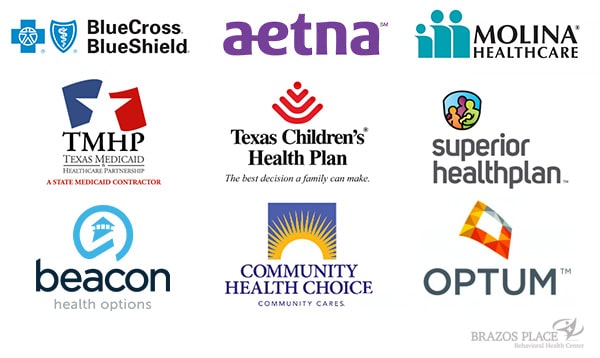How Social Media Affects Teens
Whether teens are out shopping, walking between classes, frolicking on the beach, grabbing a bite to eat, or just sitting in the privacy of their own bedroom, one thing is typically constant – they’re likely looking at a smartphone, tablet, or some other electronic screen.
While those screens are tremendous tools for learning, and for communication, they are also a seemingly constant link to social media sites. From Facebook, YouTube, and Twitter to Snapchat, Instagram, and more, today’s teenagers are enveloped by the world of social media platforms and a continuous stream of photos, posts, and opinions from around the globe. Whether they realize it or not, that overload and the effects of social media on teens can have direct implications on their real-life relationships, attitudes, demeanor, responsibilities, and more.
Find Treatment Options TodayThe Teen Brain and Social Media
While glued to their cell phones, teens receive a constant array of beeps, vibrations, and other alerts to social media notifications. Growing up in a tech-savvy society, today’s youth are tied to their smartphones like never before. Once a tool for communication and then photography, the phones are now a security blanket for much of their social and emotional life.
Studies have revealed that teenagers receiving a “like” on social media get a rush of dopamine to the brain — stimulating the same circuits to the brain that might be activated by winning money or eating a favorite piece of chocolate. That rush of dopamine creates a “high” and kicks off a desire to recreate those positive feelings. The result is teens posting more, checking more, and anxiously watching the results.
This “addiction” to social media keeps teenagers always needing more. Many fear that if they’re not on social media, they will miss something — an event, a post from a peer, or something else. Teens can be driven by a compulsion to be in the know, and fear being disconnected and isolated.
Social Media and Peer Pressure
Many teens feel an overwhelming need and desire to communicate through the virtual world. They feel pressure to add a new status, check for updates, post a photo or selfie, or otherwise initiate peer interaction and try to create a social media profile that makes them appear more attractive or likable. Often, it’s more important to capture a photo of a fun activity rather than just participate and enjoy the experience.
The teenage years are tough and even tougher today as so much revolves around a teen’s ability to find true friends, and engage in quality relationships while discovering their own self-worth and identity. Teens are under constant stress and pressure to keep up with their peers, stay connected and gain “likes.
Research also shows that teen use of social media has also increased teen depression. Teenagers are particularly susceptible to peer pressure and the added pressures of social media can put them at risk of increased mental health issues, especially those who already feel isolated or unhappy or have body image concerns.
Drug Access
Teenagers tend to seek online experiences as a place to escape or connect. They tend to compare themselves to others, be it the “popular” kids or even famous personalities. This can lead to lower self-esteem, depression, eating disorders, substance abuse, and other harmful characteristics like cyberbullying, fake friendships, and decreased social interaction skills.
Human connections are invaluable, and communicating through social media decreases that ability to connect while increasing the likelihood of negative behavior and making poor choices. Substance abuse is rampant throughout society and often glorified by celebrities and others. Social media can also be an effective strategy for selling drugs or connecting buyers to sellers.
Social Media and Mental Health
Multiple studies have shown a link between extensive usage of social media sites and an increased risk for depression, loneliness, self-harm, suicidal thoughts, and other mental health issues. From online bullying and trolls to creating toxic comparisons, social media can lead teens to experience negative thoughts and inadequacies about their life or appearance.
FOMO – the fear of missing out – can also create anxiety and depression. When a teen looks at their mobile device and discovers they’re excluded from an activity, it negatively affects their thoughts and feelings.
Does Your Teen Need Addiction Treatment?
Teens with a social media addiction show an overwhelming need to participate in the virtual world and prefer those virtual connections to real-life relationships. It is a never-ending spiral of always wanting to feed and satisfy the addiction for “likes.” But that addiction amplifies the risk for negative feelings and emotions while creating teen anxieties and depression, sleep deprivation, envy, decreased social skills, and communication issues.
If you have a teenager addicted to social media, or one that is experiencing depression, socialization issues, drug usage, or other negative behaviors as a result of too much screen time and social media, check out the programs and services provided by ADAPT (Alcohol, Drug and Psychological Treatment).
ADAPT offers an extensive history of assisting individuals of all ages to recover their lives from the disease of addiction. ADAPT programs utilize only the most validated and scientifically-based approaches from substance abuse treatment and counseling.
If you are ready to take control of your teen’s substance abuse and heal your family, contact us today for help.
Frequently Asked Questions
Additional Teen Addiction Resources
- Teen Drug Abuse
- Adolescent Outpatient Treatment
- Teen Drug Addiction Treatment
- Preparing for Rehab
- Teenage Rehabilitation Center
- Preparing Your Teen For College
- Confronting Addiction: How To Talk To Your Teenager About Teen Addiction
- Underage Drinking: Alcohol and Teens
- Underage and Teenage Drinking Stats
- Family Involvement in Teen Addiction Treatment
- How Do Teens Get Drugs
- High School Drug Use




